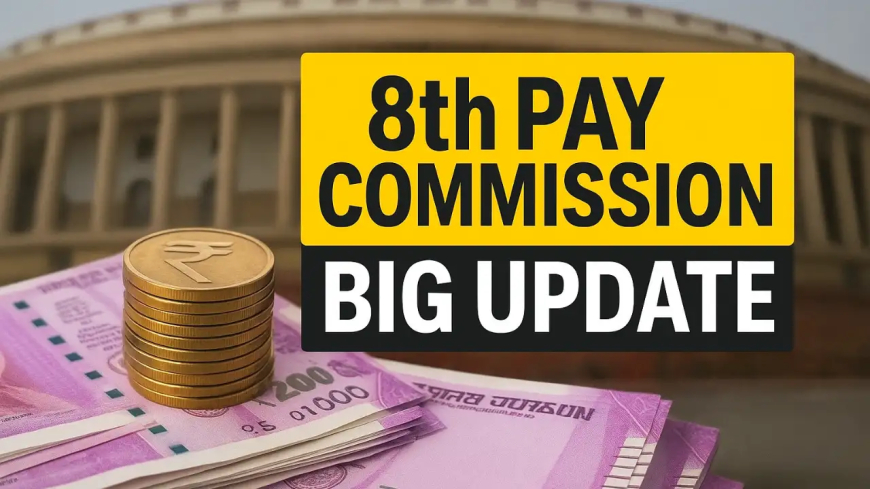8th Pay Commission Big Update: Centre Assures Early Constitution of 8th CPC – Here’s What Central Employees Should Expect
The Centre confirms early constitution of the 8th Pay Commission, bringing hope of salary hikes, pension reforms, and key benefits for central employees.

Introduction
The 8th Pay Commission (CPC) has become a trending topic among millions of central government employees, pensioners, and their families. Recently, the Centre assured that steps are being taken for the early constitution of the 8th Pay Commission, raising hopes of salary revisions, better allowances, and improved benefits. This development holds significance as it directly impacts the financial security and lifestyle of employees across various sectors.
History of Pay Commissions in India
The concept of Pay Commissions dates back to 1946, when the 1st Pay Commission was set up to evaluate and recommend salary structures for central government employees. Since then, seven pay commissions have been implemented, each playing a crucial role in adjusting wages, allowances, and pensions in line with inflation and the country’s economic growth. The 7th CPC, implemented in 2016, introduced significant changes like higher minimum pay, revised pension schemes, and better allowances. Now, the 8th CPC is expected around 2026, but the assurance of its early constitution in 2025 has generated new expectations.
Why the 8th Pay Commission Now?
Several reasons have prompted the Centre to move quickly on the 8th CPC:
-
Rising inflation and cost of living – Employees are demanding salary revisions to keep pace with economic realities.
-
Growing workforce demands – Central employees’ unions have been actively pushing for updates to reduce the burden of expenses.
-
Pensioners’ welfare – Retired employees need a strong pension revision to maintain financial stability.
-
Political and social factors – With elections around the corner, addressing employee demands could strengthen trust and goodwill.
Expected Benefits of the 8th CPC
-
Salary hike: Employees can expect a revision in the minimum pay structure, possibly from the current ₹18,000 to around ₹26,000–₹27,000.
-
Increased DA (Dearness Allowance): DA revisions may get more frequent and realistic with inflation.
-
Pension updates: Higher pension slabs for retirees, ensuring financial security in later years.
-
Allowances revision: Travel allowance, house rent allowance, and medical benefits may see major revisions.
-
Welfare schemes: New health and insurance-related benefits for employees and their families.
Key Points and Latest Updates
- The Centre has assured early constitution of the 8th CPC, earlier expected in 2026.
- Discussions are ongoing with employee unions and financial experts.
- There is speculation about AI-based monitoring of allowances to ensure fairness.
- Pension reforms may also include better commutation and gratuity structures.
- Implementation could be phased, depending on the country’s economic condition.
Important Factors & Significance
-
Economic impact: The 8th CPC will affect not just employees but also the government’s expenditure patterns.
-
Social stability: Improved financial conditions reduce stress and enhance productivity.
-
Rural and urban effects: With many employees residing in smaller towns, a salary revision will boost local economies.
Advantages
-
Improved financial stability for employees and pensioners.
-
Higher consumer spending will support the economy.
-
Better job satisfaction and motivation among government employees.
Disadvantages
-
Heavy financial burden on the government exchequer.
-
Possibility of inflation rise due to increased disposable income.
-
Private sector employees may feel left out, creating disparity.
Positive and Negative Impacts
-
Positive: Employee morale, productivity, and family well-being improve.
-
Negative: If not managed, fiscal deficit and inflation could increase.
Final Thoughts and Conclusion
The 8th Pay Commission is not just a routine update; it is a transformational step that can redefine financial security for millions of central government employees and pensioners. While the Centre’s assurance of early constitution brings relief and excitement, balancing employee welfare with the national economy remains a challenge. The success of the 8th CPC will depend on careful planning, realistic salary revisions, and sustainable implementation.

 Ellofacts
Ellofacts 





